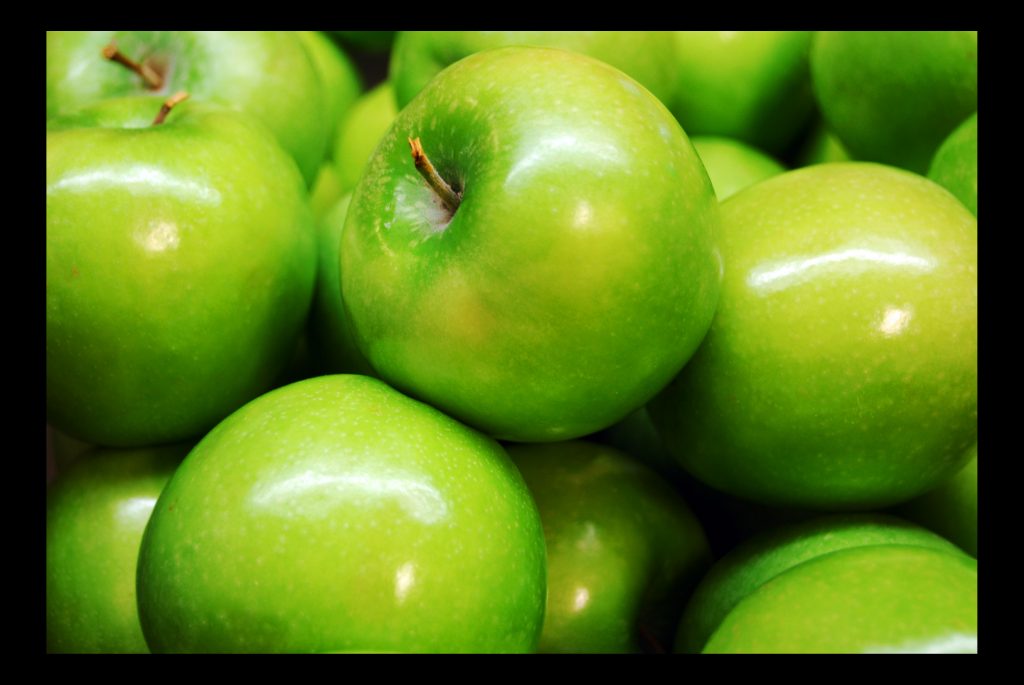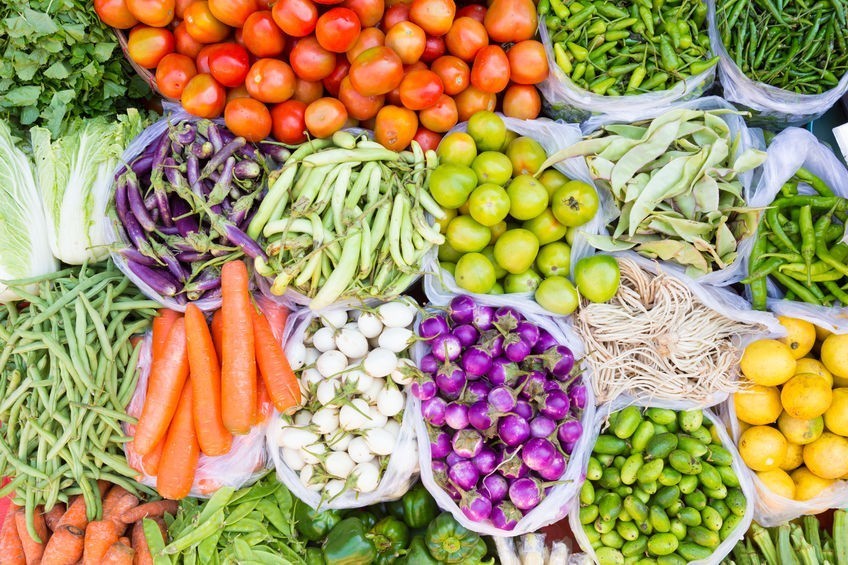Organic food is one of the hottest topics in nutrition today – a quick googling yields more than 18 million results – and nearly everyone has an opinion on it. A recent survey found that nearly half of all Americans report choosing organic foods when possible.
There is concern that pesticides used on conventionally-grown foods may pose a cancer risk, particularly to agricultural workers. However, it is not known whether eating conventionally grown foods poses health risks. Findings from a new study published last week in JAMA Internal Medicine suggest that organic foods may lower cancer risk.
The study was conducted in France as part of the NutriNet-Santé, an ongoing web-based prospective cohort study that began in 2009. NutriNet-Santé investigates the relationship between nutrition and health using online questionnaires to track the dietary patterns, lifestyle behaviors, and health histories of a large cohort of nearly 70,000 men and women. The participants answer questions about what they eat, how much they exercise, whether they smoke, and a variety of demographic factors, such as their age and education level. Once a year they also complete a health status questionnaire, where they report any major health events, including cancer diagnosis.
The current study spanned a period of seven years. The average age of the participants was 44 years, and about three-fourths of them were women. Of the nearly 70,000 participants, 1,340 people reported a cancer diagnosis during the 7-year period. Reports of basal cell carcinoma, a type of skin cancer, were not included.

To determine whether there was a link between the participants’ organic food intake and cancer risk, the researchers separated the participants into four groups, based on how often they ate organic foods, ranging from “most of the time” to “never.” Then they compared the cancer rates among the four groups.
The researchers found that the participants in the group that ate organic foods most often were 75 percent less likely to develop cancer, compared to those in the group that never ate them. When considering individual types of cancer, the findings were strongest for postmenopausal breast cancer, non-Hodgkin’s lymphoma, and other lymphomas.
This study has many strengths, such as its size and design. But interpreting the findings isn’t as straightforward as it seems. “Diet is complex,” says Nigel Brockton, PhD, director of research at AICR. “People who report eating organic foods are more likely to engage in healthy lifestyle behaviors, such as exercising or not smoking, which would lower their cancer risk.” For example, in this study, the researchers found that the people who ate organic foods most often were also more likely to eat an overall healthy diet that was rich in fiber, legumes, fruits, and vegetables – known cancer-fighting foods. The authors did try to adjust for some of these factors in their analyses but the chance of “residual confounding” can never be eliminated entirely, as acknowledged by the authors in their conclusions.
So, does AICR recommend eating organic foods to reduce your risk of cancer? Not so fast.

And, although the findings are an important addition to the scientific literature, AICR doesn’t base its recommendations on the results of a single study. Instead, our panel of experts assesses the data from hundreds of studies conducted over a period of a decade and compiles the findings into a single, comprehensive report. “When we see very consistent observations or associations with things like alcohol and red meat and body weight – when many, many studies show these things over and over again, in different populations – then we have much greater confidence,” says Brockton.
Finally, according to Brockton, this study does not provide any direct evidence that the proposed benefits of organic foods are due to lower or absent levels of pesticides. “If organic foods do reduce cancer risk, it may be due to higher levels of beneficial nutrients inside the produce rather than pesticides on the outside.”\
AICR’s Third Expert Report, Diet, Nutrition, Physical Activity and Cancer: A Global Perspective, which was released earlier this year, assessed the past decade of cancer prevention research and the links between diet, nutrition, physical activity, and cancer. Whereas little scientific evidence indicates that eating organic foods lowers cancer risk, an abundance of evidence points to other diet and lifestyle factors that can reduce risk, such as maintaining a healthy weight, keeping active, and eating a diet that includes plenty of fruits and vegetables – whether they are organically or conventionally produced.
This study provides a jumping-off point for more research on the role of organic foods in reducing cancer risk. Much more research is needed before we can make conclusive recommendations. For great ideas on how to prepare delicious foods that can reduce your cancer risk, check out AICR’s Healthy Recipes.
The NutriNet-Santé study is supported by the French Ministry of Health, French Institute for Health Surveillance, National Institute for Prevention and Health Education, National Institute for Health and Medical Research, National Institute for Agricultural Research, National Conservatory of Arts and Crafts, and Paris 13 University. The lead author of the study was funded by grant ANR-13-ALID-0001 from the French National Research Agency.
Sources:
Baudry, J., Assmann, K. E., Touvier, M., Allès, B., Seconda, L., Latino-Martel, P., … & Kesse-Guyot, E. Association of frequency of organic food consumption with cancer risk: findings from the NutriNet-Santé prospective cohort study. JAMA Internal Medicine.






A serious consideration should be the effect of pesticides on agricultural workers, as well as other people and animals exposed to these poisons. Of no small concern is the very far reaching effects of pesticides on ground water, not only with cancer but many other health issues.
My family farms conventionally in Michigan. Their home is serviced by a well. The well is surrounded by hundreds of acres of farmland that we spray with pesticides. We regularly have testing done on the well water and there has never been any dangerous amounts of pesticides.
I recommend that you speak with some conventional farmers and learn more about their production practices, and how we always strive to do things safely.
Thank you so much for analyzing this study and clarifying the results. I worry about people foregoing any fruits and vegetables, because they can’t afford to buy organic. Unfortunately, negative messages hurt people. We should be telling everyone just to eat their fruits and vegetables and stop worrying about the labels!
Pleasant data, important and brilliant plan, as offer well done with smart thoughts and ideas.
It is a very nice blog post you submitted here. Thanks for sharing such great knowledge about organic foods with us.
Great Article! Thank you for sharing this is very informative post, and looking forward to the latest one.
Nice content, very informative and productive page all the information is covered.
OUTSTANDING! Well written, clearly explained & easy to understand.